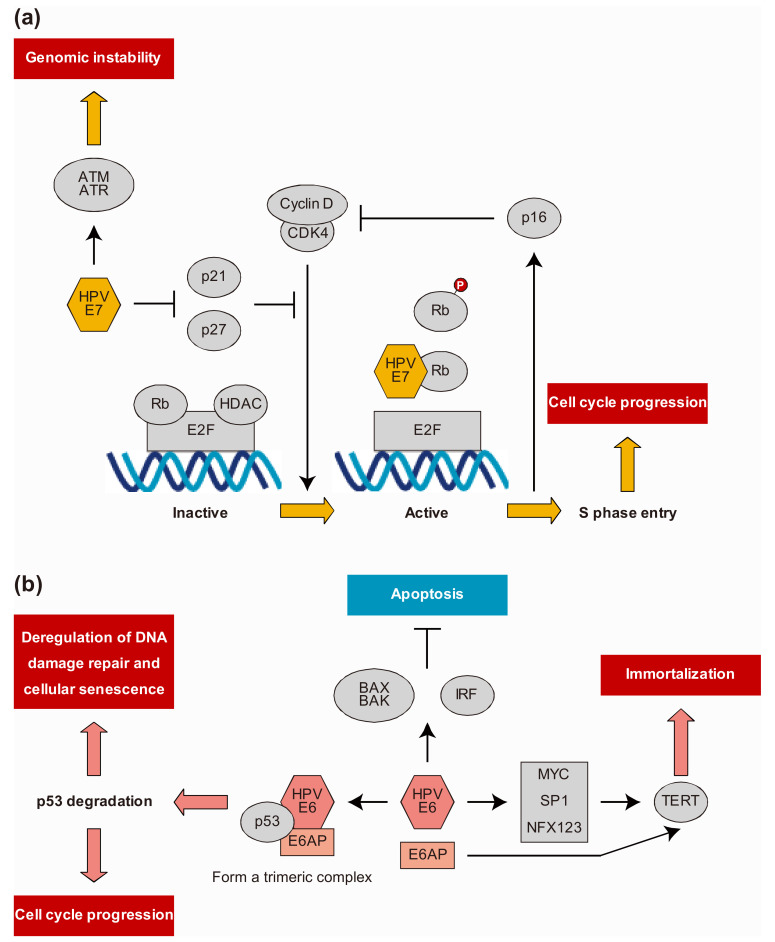Figure 2.
(a) Role of human papillomavirus (HPV) E7 oncoprotein in the progression to cancer. HR HPV E7 protein targets retinoblastoma (Rb) family members for degradation, resulting in the release and activation of E2F transcription factors that drive the expression of S phase genes as well as induction of hyperproliferation. E7 can also induce cellular proliferation through deregulation of cyclin-dependent kinase (CDK) inhibitors p21 and p27, leading to direct activation of CDK2. Degradation of Rb family members by HPV E7 protein leads to p16 overexpression, inhibiting the ability of CDK4 to interact with cyclin D and stimulating passage through the G1 phase of the cell cycle. (b) Role of HPV E6 oncoprotein in the progression to cancer. HR-HPV E6 inhibits p53-dependent growth arrest, resulting in the induction of genomic instability and the accumulation of cellular mutations. HR HPV E6 protein binds to cellular ubiquitin ligase E6AP to form a trimeric complex with p53, leading to the ubiquitylation and proteasomal degradation of p53 and the inhibition of p21. E6 also activates telomerase reverse transcriptase (TERT) and telomerase, resulting in cell proliferation and promoting immortalization.

